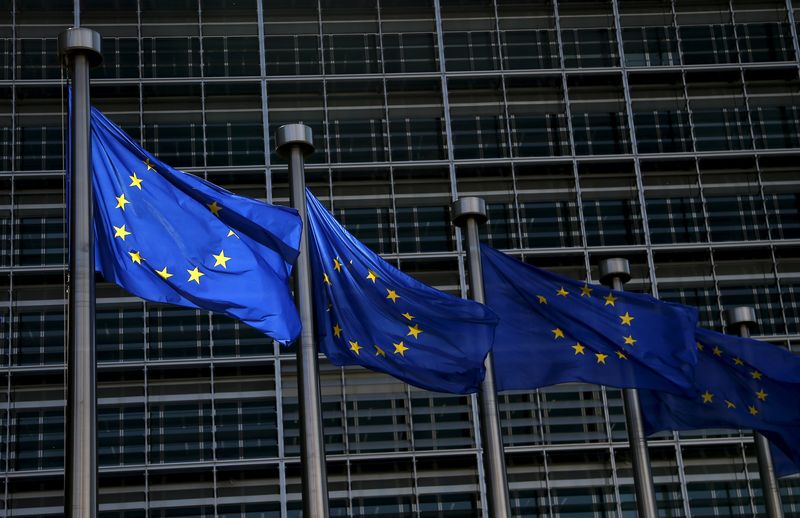BRUSSELS (Reuters) - The European Union will limit technology exports to Hong Kong that may be used for repression or surveillance, an EU draft document seen by Reuters said, in the bloc's first concrete reaction to the Chinese security clampdown on the territory.
Expressing "grave concern" for a sweeping national security law imposed by China on the former British colony, the 27 EU states agreed on Friday to a series of sanctions, including trade curbs and a review of visa agreements with the territory.
The document, backed by EU ambassadors, says the bloc will be "further scrutinising and limiting exports of specific sensitive equipment and technologies for end-use in Hong Kong, in particular where there are grounds to suspect undesirable use relating to internal repression, the interception of internal communications or cybersurveillance".
The document is expected to enter into force on Tuesday.
The Beijing-drafted national security law punishes what China broadly defines as subversion, secession, terrorism and collusion with foreign forces with up to life in prison.
Critics of the law fear it will crush the wide-ranging freedoms promised to the territory when it returned to Chinese rule in 1997, including the right to protest and an independent legal system.
Supporters of the law say it will bring stability after last year's often-violent anti-government and anti-China unrest.
The European Union also committed to "considering the implications of the national security legislation for asylum, migration, visa and residence policy", the document said.
The bloc will not launch any new negotiation with Hong Kong for the time being and will review the implications of the security law on existing agreements it has with Hong Kong.
The agreed measures could be applied by the European Union or its member states "as deemed appropriate", the document says.
The European Union reiterated its support for Hong Kong's autonomy and its citizens, pledging to further engaging with the civil society there.
The impact of the adopted measures will be reviewed before the end of the year.
